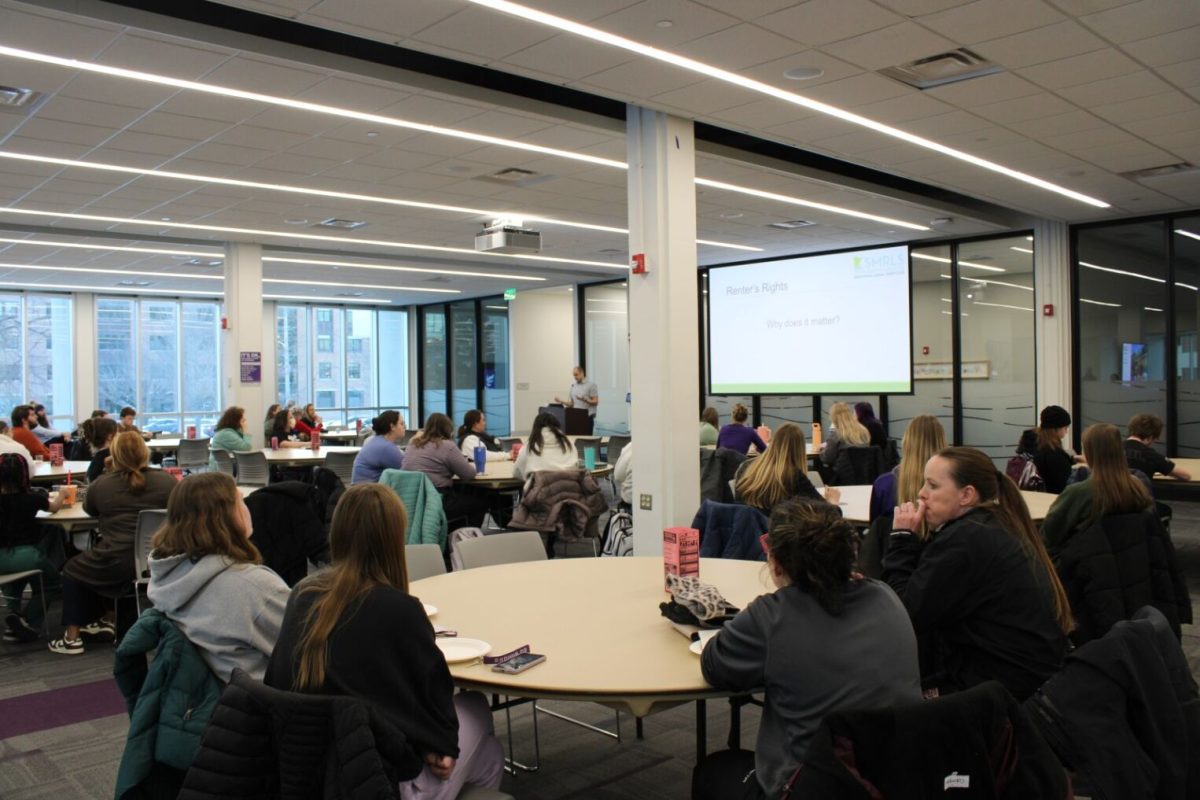Hannah Jones/Winonan
Most college students have a very complex attitude toward poetry.
On the one hand, it’s a very present and celebrated part of all of our lives in the form of song lyrics. Those with musical talent are usually not shy about strumming and crooning the songs they write themselves in the middle of campus when the weather is warm.
However, get that same student in a classroom, shove some Byron and Shelley at her and ask her to write a nice ode and recite it for the class, and that openly expressive muse will desert her entirely.
Resident poet and professor Dr. James Armstrong is familiar with this pattern. He points out that back in kindergarten, we all adored poetry. After all, who doesn’t know the canonical classic: “Bubblegum, Bubblegum, in a Dish; How Many Pieces Do You Wish?”
Ah. A timeless piece. We chanted poetry, sang it, committed it to memory and yes, we wrote it, too. So, what happened?
That’s exactly what I thought to myself as I sat in poetry class and stared at the place in my notebook where I was supposed to be filling up with an original poem.
“C’mon,: I thought. “This shouldn’t be that hard.” And indeed, it shouldn’t have been. I was trying to rhyme something with the word “dog.” Sadly, I was having a very difficult time of it.
I don’t know what I expected out of Poetry Writing when I signed up for the class.
I had seen “Dead Poet’s Society”, so I was secretly hoping that the professor would have us all stand on our desks and magically transform all of us into deep, provocative penners of poetry. Not once have we ever stood on a desk, and furthermore, my poetry is still mediocre at best. It probably doesn’t help that I simply have nothing deep or provocative to write about. I’m a comfortable, educated, emotionally stable, single Caucasian girl.
I didn’t know what about my human experience could possibly touch another life on a meaningful level, even if I did find out what stupid word rhymed with “dog.” If I wanted a better poem, I needed a better topic, and I needed one fast.
Against my better judgment, I had agreed previously to take part in a poetry slam put together by a friend of mine, thinking that my time in poetry writing class would force me to produce something fit for this stage of free expression.
The slam was fast approaching, and I still had nothing truly poignant to put into verse. I hemmed and hawed and paced the room and went through the entirety of “Dead Poet’s Society” in my head—“Oh, Captain, my Captain!”—but still nothing poetic came. What came was hunger. So, I compromised.
I did eventually find that topic for my slam poem, inspired not by anything significant or beautiful, but for my gurgling stomach.
I composed a short poem about pancakes. Nothing symbolic or representational —just pancakes.
I took a deep breath and performed it at the slam just as if I was having a conversation about breakfast food with a friend.
Then, to my surprise, they all clapped. I blinked, thwarted. They might as well have all been standing on their chairs.
Maybe I’m not a pensive, heart-piercing poet, but apparently I’m passionate enough about something to make a decent poem out of it: a poem kindergarten-me would have loved.
That may be what we all forget when we get older and we get less fond of meter and rhyme.A poem doesn’t have to be monumental or flowery or gut-wrenching; a poem can be as simple and as commonplace as a pancake.
Just because Keats didn’t write about flapjacks doesn’t mean they’re off-limits.
I’ll keep writing in my poetry journal, and maybe worry a bit less about making something for the anthologies and focus a bit more on that simple happiness that comes with giving significance to something commonplace: your pillow, your car, your computer, you name it. It could be a poem, and you could be a poet.
“…Frog!” Oh my God, why didn’t I think of that?
Contact Hannah at HJones09@winona.edu






































